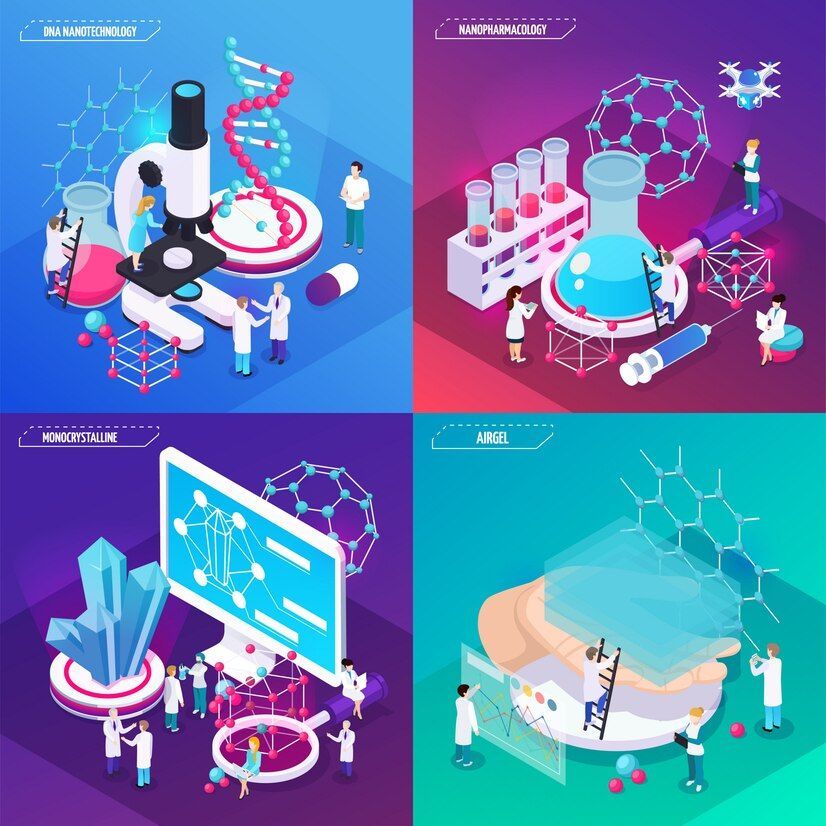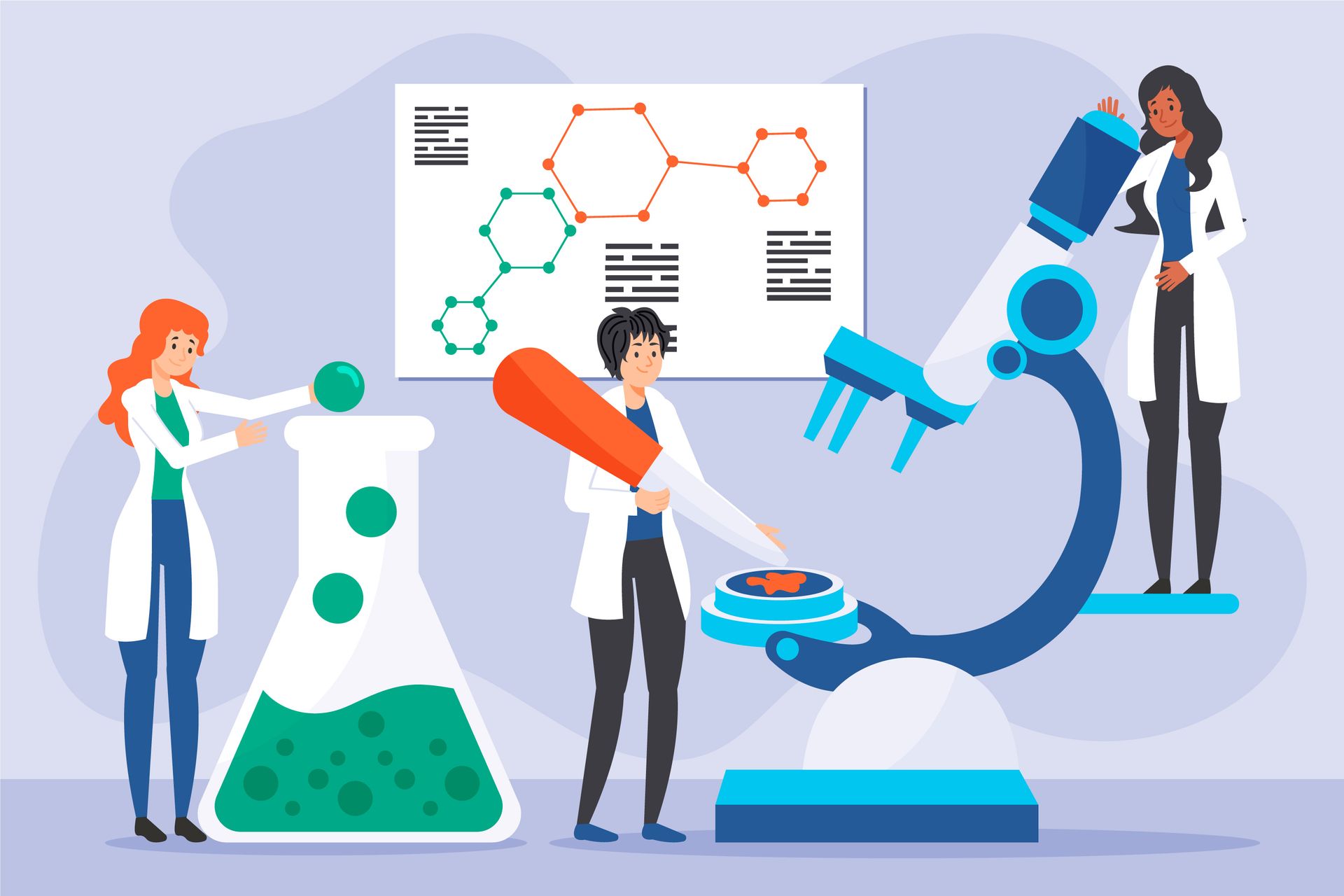BLOG

June 3, 2024
By: Bethel T. | June 03, 2024 PacBio (NASDAQ: PACB), a prominent provider of high-quality sequencing platforms, has made a significant announcement regarding the issuance of equity incentives to recently onboarded employees (1). This move, facilitated by the Compensation Committee of the Company's Board of Directors, exemplifies the company's commitment to attracting and retaining top talent. The Equity Incentive Grant As part of the Pacific Biosciences 2020 Inducement Equity Incentive Plan, the Compensation Committee has approved the issuance of a non-qualified stock option (the "Option") covering 79,600 shares of PacBio common stock. Additionally, the grant includes restricted stock units ("RSUs") for 39,800 shares of PacBio common stock. This grant, effective from March 18, 2024, signifies a strategic inducement to newly hired employee, in compliance with Nasdaq Marketplace Rule 5635(c)(4).

April 8, 2024
By: Pierrelyne D. | April 08, 2024 In the intricate web of economic forecasts and projections, understanding the underlying trends is paramount. The Bureau of Labor Statistics (BLS) provides invaluable insights into the future of employment through its comprehensive projections. As we delve into the dynamics shaping the job market from 2022 to 2032, it becomes evident that demographic shifts play a pivotal role in driving these forecasts. The job outlook in biotechnology is promising, with an anticipated 5% employment growth from 2022 to 2032, faster than the average for all occupations, as reported by the U.S. Bureau of Labor Statistics, Employment Projections program(1). This growth is driven by the increasing demand for biological and medical research, particularly in areas such as synthetic biology and biotechnology research and development projects. The U.S. Bureau of Labor Statistics also projects about 10,600 job openings for biological technicians each year over the next decade(2.”Chart 1”).

April 4, 2024
By: Pierrelyne D. | April 04, 2024 Entering the biotechnology industry opens up a world of possibilities, ranging from laboratory technicians to bioinformatics specialists and bioprocess engineers. Each of these roles requires a unique set of competencies, often attained through specialized education and training programs. By exploring the various career paths available in biotech, this blog aims to provide insights into the academic paths that aspiring professionals can pursue to thrive in this rapidly evolving field. Whether it's a degree in molecular biology, biochemistry, or biomedical engineering, understanding the educational prerequisites for specific biotech roles can be instrumental in charting a successful career trajectory. Job Titles in Biotech Entry-Level Technician Roles Environmental Science and Protection Technician: Oversee the environment; monitor pollution sources, and may conduct investigations to identify sources of pollution or contamination. Facilities Technician: Accountable for the management and upkeep of biomanufacturing facilities and machinery. Food Sample Inspector: Provide inspections of organizations that handle and prepare food, including restaurants and supermarketsto ensure compliance with safety and sanitation regulations. Genomics Technician: Utilize technologies related to characterizing and comparing DNA and RNA sequences. Laboratory Assistant: Provide support in laboratory settings, including cleaning, maintaining equipmentand assisting with experiments. Laboratory Safety Associate: Manage and enforce safety protocols in laboratory environmentsto minimize risks to personnel and ensure compliance with safety regulations. Specialized Technician Roles Agricultural Technician: Support the production and use of agricultural materials, which can involve tasks like soil testing, crop monitoring, and research on agricultural techniques. Animal Technician: Care for laboratory animals used in biotech research, veterinary research, and product testing. Biomanufacturing Technician - Downstream/Upstream: Involved in the processes of harvesting, testing, purifying, and packaging biological products. Cell Culture Technician: Cultivate living cells in controlled environments, which is crucial for various applications in research, medicine, and biotechnology. Compliance Specialist: Manage organizations' need to comply with regulations and standards relevant to their industry, including laws, grant requirements, and internal policies. Advanced Research and Development Roles Clinical Research Associate: CRAs are involved in various aspects of clinical trials. They evaluate the safety and efficacy of new medications or medical treatments in human subjects including protocol development, participant recruitment, data collection, and monitoring to ensure compliance with regulatory standards. Biomedical Equipment Technician: Responsible for the installation, maintenance, calibration, and repair of medical equipment used in healthcare facilities. This includes devices such as patient monitors, imaging equipment, and surgical instruments. BMETs ensure that medical equipment is functioning correctly and safely to support patient care and medical procedures. College Degrees Required Undergraduate Degrees Bachelor of Science in Biology, Chemistry, or Biochemistry: Commonly sought after for entry-level positions in research, quality control, and regulatory affairs. Associate's Degree in Biotechnology or related field: Provides foundational knowledge for technician roles in biomanufacturing and laboratory settings. Graduate Degrees Master of Science in Biotechnology: Offers specialized knowledge for advanced positions in R&D, bioprocess development, and management. Ph.D. in Molecular Biology or related fields: Essential for leadership roles and advanced research positionsin academia, industry, or government. The biotechnology industry is rapidly expanding, offering a wide range of career opportunities for individuals with varying levels of education and expertise. From entry-level technician roles to advanced research positions, the field of biotech requires a combination of formal education, practical skills, and continuous learning to thrive. With the right qualifications and a passion for scientific innovation, aspiring professionals can embark on a rewarding journey in the dynamic world of biotechnology. For comprehensive insights into job requirements and educational pathways, delve into the wealth of resources offered by these top 5 biotech organizations: Biotechnology Innovation Organization (BIO)(1): BIO is the world's largest biotechnology trade association, representing biotech companies, academic institutions, state biotechnology centers, and related organizations. They offer networking opportunities, industry events, educational programs, and advocacy efforts to support professionals in the biotech field. American Society for Microbiology (ASM)(2): ASM is the largest single life science society, representing microbiologists worldwide. They provide educational resources, conferences, publications, and networking opportunities that are valuable for individuals pursuing careers in microbiology and related fields within biotechnology. Association of Biotechnology and Pharmacy (ABAP)(3): ABAP is an organization dedicated to promoting education, research, and collaboration in biotechnology and pharmaceutical sciences. They offer conferences, workshops, and publications focused on advancing knowledge and skills in the biotech industry. International Society for Pharmaceutical Engineering (ISPE)(4): ISPE is a global organization focused on promoting excellence in the pharmaceutical and biopharmaceutical manufacturing industry. They provide training programs, conferences, and publications covering various aspects of bioprocessing, quality assurance, and regulatory compliance. Society for Industrial Microbiology and Biotechnology (SIMB)(5): SIMB is a professional society dedicated to advancing the field of microbiology and biotechnology through research, education, and collaboration. They offer conferences, publications, and networking opportunities that support professionals working in industrial microbiology and biotechnology. Embark on your journey toward success in the biotech industry by taking the first step and contacting Berton Staffing at 1-888-5-BERTON, info@BertonStaffing.com or visit our website, www.BertonStaffing.com . With our expertise and connections in Fort Lauderdale, Florida, we are dedicated to seamlessly bridging your path to achievement. Whether you're seeking guidance on educational opportunities, career pathways, or job placement, our team is here to support you every step of the way. Your future in biotech begins now—let's make it happen together! REFERENCE Biotechnology Innovation Organization https://www.bio.org/ American Society for Microbiology, https://asm.org/ Association of Biotechnology and Pharmacy, https://www.abap.co.in/index.php/home International Society for Pharmaceutical Engineering, https://ispe.org/ Society for Industrial Microbiology and Biotechnology, https://www.simbhq.org/

March 18, 2024
By: Pierrelyne D. | March 18, 2024 Certainly, embarking on a career in biotechnology offers a multitude of opportunities for professional growth and contribution to society. Biotechnology, a dynamic and rapidly expanding field, synergizes biological principles with cutting-edge technology to forge innovative solutions that address pressing global challenges. From pioneering new therapies to combat diseases to revolutionizing agricultural practices for sustainable food production, the impact of biotechnology spans diverse sectors, promising tangible benefits for human health and environmental sustainability. However, like any career path, pursuing biotechnology also entails its own set of considerations. While the field presents exciting prospects for innovation and discovery, it is characterized by inherent complexities and uncertainties. Challenges such as navigating stringent regulatory frameworks, managing the high costs associated with research and development, and addressing ethical dilemmas inherent in genetic manipulation are among the factors that warrant careful consideration. By comprehensively evaluating the pros and cons, aspiring professionals can make informed decisions about their career trajectory within the biotechnology landscape, recognizing both the potential rewards and the challenges that lie ahead. Through strategic planning, continuous learning, and a commitment to ethical practice, individuals can harness the transformative power of biotechnology to drive positive change and contribute meaningfully to the advancement of science and society. Pros Innovation and Impact: Biotechnology offers the opportunity to work on cutting-edge research and development that can have a profound impact on healthcare, agriculture, environmental sustainability, and other critical areas.Let's delve deeper into the innovation and impact aspects of biotechnology: Healthcare Advancements: Biotechnology plays a pivotal role in revolutionizing healthcare through the development of novel therapies, diagnostic tools, and medical devices. Biopharmaceuticals, such as monoclonal antibodies, gene therapies, and vaccines, have transformed the treatment landscape for various diseases, including cancer, autoimmune disorders, and rare genetic conditions. Additionally, advancements in genomics and personalized medicine enable tailored treatment approaches based on individuals' genetic makeup, leading to more effective and precise interventions. Agricultural Innovation: Biotechnology contributes to agricultural sustainability and food security by enhancing crop yields, improving resistance to pests and diseases, and reducing environmental impact. Genetically modified organisms (GMOs) and gene editing techniques, such as CRISPR-Cas9, enable the development of crops with desired traits, such as drought tolerance, nutrient efficiency, and increased nutritional value. These innovations help address global challenges such as climate change, population growth, and limited arable land while ensuring food production sustainability. Environmental Sustainability: Biotechnology offers solutions for mitigating environmental challenges, including pollution remediation, waste management, and renewable energy production. Bioremediation techniques leverage microorganisms to degrade pollutants and contaminants in soil, water, and air, facilitating environmental cleanup and restoration. Additionally, biofuels derived from renewable biomass sources offer a sustainable alternative to fossil fuels, reducing greenhouse gas emissions and dependence on finite resources. Drug Discovery and Development: Biotechnology accelerates drug discovery and development processes by enabling high-throughput screening, target identification, and rational drug design. Techniques such as computer-aided drug design, combinatorial chemistry, and in vitro and in vivo models enhance efficiency and reduce costs in the drug development pipeline. This facilitates the translation of scientific discoveries into therapeutic interventions, addressing unmet medical needs and improving patient outcomes. Emerging Technologies: Rapid advancements in biotechnology continue to drive innovation across diverse fields, including synthetic biology, regenerative medicine, and bioinformatics. Synthetic biology techniques allow the engineering of biological systems to create new functionalities, organisms, and materials with applications in healthcare, agriculture, and industrial biotechnology. Regenerative medicine approaches harness stem cells, tissue engineering, and gene editing to develop therapies for tissue repair, organ transplantation, and disease modeling. Bioinformatics tools and computational biology methods analyze complex biological data, facilitating insights into disease mechanisms, drug interactions, and personalized treatment strategies. Job Growth and Stability: The global biotechnology market has been experiencing steady growth, driven by factors such as advancements in biopharmaceutical research, increasing investments in agricultural biotechnology, and growing demand for personalized medicine. According to a report by Grand View Research(1), the global biotechnology market size was valued at 1.55 trillion in 2023 and is projected to reach $3,88 trillion by 2030, exhibiting a a compound annual growth rate (CAGR) of 13.96% from 2024 to 2028. Financial Rewards: The demand for skilled professionals in biotechnology remains high, driven by ongoing research and development activities across various sectors, including pharmaceuticals, agriculture, healthcare, and environmental science. Biotechnology companies, academic institutions, government agencies, and research organizations continue to seek qualified candidates to fill roles in research, development, manufacturing, regulatory affairs, and quality assurance. These trends indicate that careers in biotechnology offer not only attractive remuneration but also promising opportunities for growth and advancement. Contribution to Society: Many professionals find fulfillment in knowing that their work directly contributes to advancements in medicine, food production, and environmental conservation. Let's embark on a journey to explore the various forms of fulfillment found in contributing to society through the lens of biotechnology. Sense of Purpose: Many biotechnology professionals derive deep satisfaction from knowing that their work directly contributes to making a positive impact on society. By developing life-saving therapies, improving food security, and promoting environmental sustainability, they play a crucial role in addressing some of the most pressing challenges facing humanity. This sense of purpose and meaning in their work can bring a profound sense of fulfillment and satisfaction. Making a Difference: Knowing that their efforts contribute to tangible advancements in medicine, agriculture, and environmental conservation allows biotechnology professionals to see the direct impact of their work on people's lives and the planet. Whether it's developing a new treatment for a life-threatening disease, enhancing crop yields to feed a growing population, or cleaning up polluted environments, their contributions can lead to real and meaningful changes that benefit society as a whole. Personal Growth and Development: Engaging in work that contributes to the greater good can also foster personal growth and development. Biotechnology professionals often encounter complex challenges that require creativity, problem-solving skills, and collaboration to overcome. By tackling these challenges and seeing the positive outcomes of their efforts, they can develop a sense of resilience, adaptability, and self-confidence that enriches their professional and personal lives. Sense of Community: The field of biotechnology fosters a sense of community among professionals who share a common goal of using science and technology to improve the world. Collaborating with like-minded colleagues, sharing knowledge and expertise, and working towards shared objectives can create a supportive and fulfilling work environment. This sense of camaraderie and shared purpose can enhance job satisfaction and overall well-being. Legacy and Impact: Contributing to advancements in medicine, food production, and environmental conservation allows biotechnology professionals to leave a lasting legacy that extends beyond their individual careers. Knowing that their work has contributed to building a healthier, more sustainable future for future generations can bring a sense of pride and fulfillment that transcends professional success. Continuous Learning and Development: The field of biotechnology is dynamic, offering opportunities for ongoing learning and professional growth as new technologies and methodologies emerge. Educational Opportunities: Biotechnology professionals can pursue a variety of educational pathways to enhance their knowledge and skills. This includes traditional academic programs such as bachelor's, master's, and doctoral degrees in biotechnology, biology, biochemistry, or related fields. Additionally, many universities and institutions offer specialized certificate programs, online courses, and professional development workshops tailored to specific areas within biotechnology, such as gene editing, bioinformatics, or bioprocessing. Industry Certifications: Obtaining industry-recognized certifications can also demonstrate proficiency and expertise in specific areas of biotechnology. For example, certifications in Good Laboratory Practice (GLP)(2), Good Manufacturing Practice (GMP)(3), or Regulatory Affairs can be valuable for professionals working in biopharmaceutical manufacturing or regulatory compliance roles. Similarly, certifications in molecular biology techniques, laboratory instrumentation, or quality control methods can enhance the credentials of laboratory technicians and research scientists. On-the-Job Training: Many biotechnology companies offer on-the-job training programs and mentorship opportunities to support the professional development of their employees. These programs may include rotations across different departments, hands-on experience with cutting-edge technologies and equipment, and opportunities to collaborate on research projects with seasoned experts in the field. On-the-job training allows professionals to gain practical skills, expand their knowledge base, and develop valuable industry contacts. Continuing Education: Lifelong learning is essential for staying current in the field of biotechnology, given its dynamic nature. Professionals can engage in continuing education activities such as attending scientific conferences, seminars, and workshops, participating in online webinars and discussion forums, and subscribing to peer-reviewed journals and industry publications. These opportunities provide access to the latest research findings, technological innovations, and best practices in biotechnology, enabling professionals to remain at the forefront of their field. Professional Associations and Networks: Joining professional associations and networking groups in the biotechnology industry can also facilitate ongoing learning and career development. These organizations often offer access to educational resources, job boards, mentorship programs, and networking events where professionals can connect with peers, share knowledge, and exchange ideas. Participating in industry associations allows professionals to stay informed about industry trends, regulatory updates, and career opportunities while expanding their professional network. Cons Educational Requirements: Most biotechnology roles require advanced degrees, such as a master's or a Ph.D., which can involve significant time and financial investment. Regulatory Challenges: The biotechnology industry is heavily regulated, which can lead to lengthy approval processes for new products and technologies, potentially impacting timelines and budgets.Let's delve deeper into the challenges posed by regulations within the biotechnology industry. Stringent Regulatory Framework: The biotechnology industry operates within a highly regulated environment governed by stringent regulations and guidelines imposed by regulatory agencies such as the Food and Drug Administration (FDA)(4), the European Medicines Agency (EMA)(5), and the World Health Organization (WHO)(6). These regulations are designed to ensure the safety, efficacy, and quality of biotechnological products and technologies, but they also impose rigorous requirements on companies seeking approval for new products or technologies. Complex Approval Processes: Bringing a biotechnological product or technology to market typically involves navigating complex regulatory approval processes, which can be time-consuming and resource-intensive. Companies must submit comprehensive documentation, including preclinical and clinical trial data, manufacturing processes, quality control measures, and risk assessments, to regulatory authorities for review and approval. This process may entail multiple rounds of submissions, requests for additional information, and regulatory inspections, prolonging the time to market and increasing associated costs. Uncertainty and Risk Mitigation: Regulatory approval for biotechnological products and technologies is not guaranteed and is subject to rigorous scrutiny and evaluation by regulatory agencies. Companies must demonstrate the safety, efficacy, and quality of their products through robust preclinical and clinical testing, which can be fraught with uncertainty and risk. Failure to meet regulatory requirements or address regulatory concerns can result in delays, rejections, or even product recalls, leading to financial losses and reputational damage for companies. Impact on Timelines and Budgets: Regulatory challenges can significantly impact project timelines and budgets for companies operating in the biotechnology industry. Delays in regulatory approvals can prolong the time to market, delaying potential revenue generation and increasing development costs. Additionally, the need to conduct additional studies or implement changes to meet regulatory requirements can escalate project expenses, further straining budgets and resources. These challenges may be particularly daunting for small and medium-sized enterprises (SMEs) with limited financial resources and capabilities to navigate the regulatory landscape effectively. Workload and Pressure: The nature of research and development in biotechnology can be intense, with tight deadlines and high expectations, leading to potential stress and long working hours. Volatility of Startups: Biotechnology startups operate in a dynamic and often volatile environment characterized by rapid technological advancements, fierce competition, and unpredictable market forces. As emerging companies, startups face inherent risks and uncertainties related to funding, market acceptance, and regulatory approvals, which can impact their ability to sustain operations and support a stable workforce. Fluctuations in funding, changes in market conditions, or unexpected setbacks in product development can lead to layoffs, downsizing, or even company closures, resulting in job insecurity for employees. Funding Challenges: Biotechnology startups typically rely on external funding sources, such as venture capital, angel investors, or government grants, to finance their research and development activities. However, securing funding for biotechnology startups can be challenging, particularly in the early stages of company formation when the technology is still in the preclinical or proof-of-concept phase. Investors may be hesitant to invest in unproven technologies or companies with limited track records, leading to funding gaps or delays in capital infusion. Without adequate funding, startups may struggle to sustain their operations, leading to workforce reductions or restructuring initiatives to conserve resources. Market Uncertainty: Bringing a biotechnological product or technology to market involves navigating complex regulatory pathways, establishing market demand, and competing against established players in the industry. Startups may face uncertainty regarding the commercial viability of their products or technologies, as well as challenges in gaining market acceptance and penetration. Factors such as pricing pressures, reimbursement policies, and competitive dynamics can influence the success or failure of a startup's product launch, affecting the stability of the workforce and employee job security. High-Risk, High-Reward Environment: Working in a biotechnology startup offers the potential for significant rewards, including the opportunity to contribute to groundbreaking innovations, participate in entrepreneurial ventures, and potentially reap financial benefits through equity ownership or stock options. However, it also entails inherent risks and uncertainties associated with early-stage companies, including the possibility of failure, job loss, or career disruption. Employees in biotechnology startups must weigh the potential rewards against the risks and uncertainties inherent in the startup environment and make informed decisions about their career trajectory and long-term prospects. Embarking on a career in biotechnology unveils a realm of endless possibilities for individuals driven by a fervent passion for science, technology, and societal advancement. Despite the challenges that may arise, the allure of meaningful work, continuous professional development, and the opportunity to make a tangible difference in the world draws countless aspiring professionals to this dynamic field. The prospect of spearheading groundbreaking discoveries, the gratification derived from contributing to life-saving innovations, and the allure of participating in an ever-evolving industry are just a few of the facets that make biotechnology an irresistible career choice. For those equipped with unwavering dedication and a thirst for knowledge, a career in biotechnology holds the promise of profound fulfillment and unparalleled professional growth. In the pursuit of scientific excellence and societal betterment, the journey through the realm of biotechnology is both challenging and rewarding. With each step forward, individuals have the opportunity to leave an indelible mark on the world, shaping the course of scientific progress and improving the lives of countless individuals. It is within this transformative landscape that the true allure of a career in biotechnology lies, offering boundless potential for those bold enough to embrace its possibilities. REFERENCE Grand View Research, Biotechnology Market Size, Share & Trend Analysis By Technology (Nanobiotechnology, DNA Sequencing, Cell-based Assays), By Application (Health, Bioinformatics), By Region, And Segment Forecasts, 2024 – 2030, https://www.grandviewresearch.com/industry-analysis/biotechnology-market CITI Program, Good Laboratory Practice (GLP), https://about.citiprogram.org/course/good-laboratory-practice/ World Health Organization, Good Manufacturing Practices, https://www.who.int/teams/health-product-policy-and-standards/standards-and-specifications/gmp US Food and Drug Administration, FDA Rules and Regulations, https://www.fda.gov/regulatory-information/fda-rules-and-regulations European Medicines Agency, Legal framework, https://www.ema.europa.eu/en/about-us/what-we-do/legal-framework World Health Organization, International Health Regulations, https://www.who.int/health-topics/international-health-regulations
Copyright © 2024 | Berton Staffing | All Rights Reserved. Privacy Policy